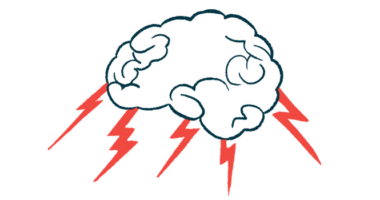Blocking JNK Signaling Pathway May Be Useful for Treating Rett

A cellular signaling pathway called the JNK pathway is overactive in cell and animal models of Rett syndrome, and blocking it lessens signs of the disease in these models, according to a new study.
“These results suggest that JNK inhibition could offer an attractive therapeutic strategy to tackle RTT [Rett syndrome],” the researchers concluded.
The study, “JNK signaling provides a novel therapeutic target for Rett syndrome,” was published in the journal BMC Biology.
The JNK (c-Jun-N-terminal kinase) stress or signaling pathway is important for coordinating numerous processes that are important for brain health and development. Of particular note, this pathway is important for helping brain cells respond to stressors.
Abnormal activity of the JNK pathway has been implicated in several neurological disorders, like Huntington’s and Parkinson’s diseases. However, its role in Rett syndrome is unknown. Now, a group of researchers in Italy examined the role of the JNK pathway in three models of Rett syndrome.
First, the team looked at two mouse models — one male and one female, with the male model representing a more severe disease state. Both models were caused by mutations in the MECP2 gene, which cause most cases of Rett syndrome.
Compared with wild-type (control) animals, male Rett mice showed a pronounced drop in body weight, reduced water intake until 7 weeks of age, and worse motor ability. They also showed an increasing frequency of apnea, or repeated starts and stops in breathing, with aging.
The scientists assessed JNK activation in the mouse brain by looking at chemical alterations of proteins involved in the signaling pathway, particularly phosphorylation — the addition of a phosphate group.
The results indicated that there was “powerful activation of the JNK-stress pathway” in the Rett mouse brain, the team reported. This activation was accompanied by abnormalities in protein levels and organization at the synapse, the site of near contact where neurons communicate, in the cerebellum.
Notably, the cerebellum regulates thin movements and motor coordination, making it a relevant brain area to Rett locomotor impairments, according to the team.
The investigators then treated the mice with injections of D-JNKI1, a compound that blocks the JNK pathway. Of note, D-JNKI1 is currently in clinical trials for the prevention of eye inflammation in people undergoing cataract surgery, as well as for the treatment of hearing loss.
Results showed that this treatment decreased JNK activation and lessened synaptic abnormalities. Also, treated mice had fewer Rett-like motor symptoms.
This treatment also significantly lowered instances of apnea, and no toxic effects or safety concerns were noted. In fact, treated mice tended to gain weight despite eating and drinking the same amount, which the researchers said indicates improvement in their overall well-being.
The team then used a third model using patient-derived neurons. Simplistically, this model involves collecting skin cells from patients, then “reverse engineering” those cells to become stem cells — called induced pluripotent stem cells, or iPSCs — which then can be grown into neurons for experimentation.
Results showed that neurons with MECP2 mutations had increased JNK activity, and also showed signs of cell death. D-JNKI1 treatment decreased JNK activation and reduced cell death in this model. Importantly, these human cells showed no evidence of toxicity in response to the treatment.
“The specific JNK inhibition, by D-JNKI1, reverses RTT pathological phenotypes [disease-associated features] in all three models,” the researchers concluded. “This is the first demonstration that JNK plays a key role in RTT.”
“Since JNK-specific inhibition prevents RTT synaptopathy [synapse disruption] and rescues behavioral and breathing defects, treatments that target the JNK pathway represent strong candidates against RTT and other neurodevelopmental disorders,” they added.
The scientists noted a need for further research on the biological connections between MECP2 mutations and JNK activation, which may reveal new avenues for therapies.







